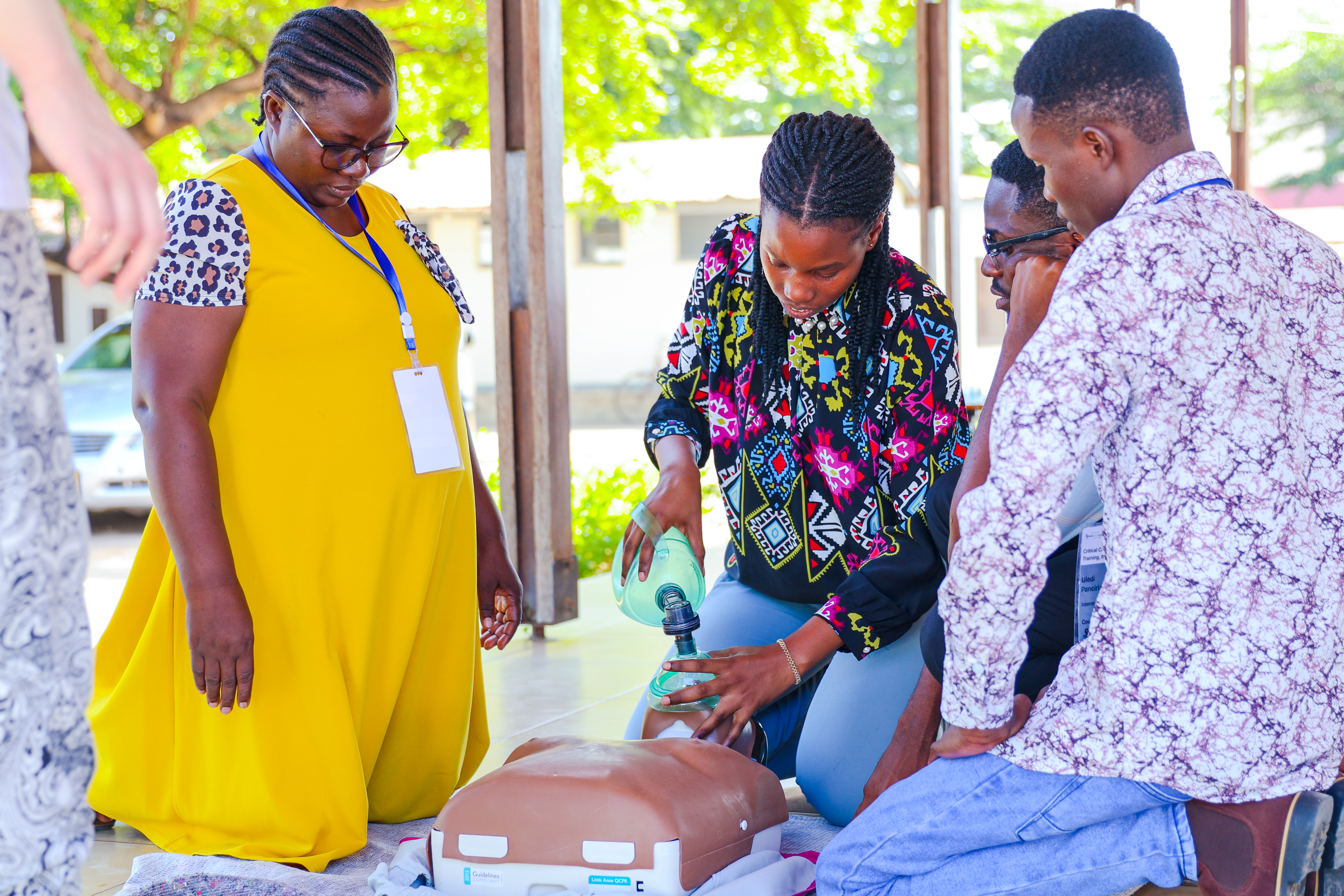
TRAINING: Medical pros equipped with critical care skills

For two weeks, medical professionals from Ifakara gathered at St. Francis Regional Referral Hospital for an intensive Intermediate Care Course aimed at mastering critical care medicine.
Held from February 24 to March 7, 2025, the course was organized by Ifakara Health Institute and St. Francis Regional Referral Hospital (SFRRH), in collaboration with experts from Benjamin Mkapa Hospital (BMH), the Jakaya Kikwete Cardiac Institute (JKCI), Swiss TPH and the University Hospital of Basel.
Refining skills for managing critically ill patients
Thirty experienced nurses and doctors participated in the program, designed to sharpen their skills in managing critically ill patients. The two-week training focused on strengthening teamwork and applying advanced medical techniques in emergency response for conditions such as cardiogenic shock, respiratory failure, infectious disease management, acute kidney injury, and traumatic brain injury.
In addition, a total of 23 participants working at the Intermediate Care Unit (ICU) were trained in invasive ventilation of intubated patients during 5 x 3 hours of theory and practice.
Expert facilitators from Tanzania, Switzerland
Facilitators from the Ifakara Health Institute included PD Dr. Martin Rohacek, a physician at the Heart and Lung Clinic, Intermediate Care Unit, and Emergency Department at SFRRH; Prof. Dr. Maja Weisser from the Chronic Disease Clinic Ifakara (CDCI); Andrew Katende, Head of the Heart and Lung Clinic at Ifakara, and Geoffrey Mbunda, a specialized nurse at the IMC, and Claudia Bucher, emergency medicine nurse at the Emergency Department SFRRH.
Outside IHI, experts included Dr. Vivian Mlawi, head of the intensive care unit (ICU) of JKCI, Dr. Wilson Lugano, Intensivist at the BMH, Fabian Fiechter, and Sarah Funk, and Damian Wesa, expert ICU nurses, and Dr. Selina Wettstein, Intensivist from University Hospital Basel, and Witness Lubomba, Nephrologist at the SFRRH.
Week 1:
Mastering assessments, emergency protocols
In the first week, participants learned about assessments of critically ill patients, using the Airway, Breathing, Circulation, Disability, Exposure (ABCDE) approach and Early warning system (EWS) protocols to initiate early interventions. They also worked through complex scenarios involving acute cardiac emergencies, honing skills in cardiac monitoring, interpreting ECGs, and performing CPR.
Sepsis and infection management
In another session, participants were introduced to specialized modules on sepsis management, focusing on recognizing and treating infections effectively. Trainees gained knowledge on infection control and antibiotic optimization while developing crucial rapid decision-making skills in critical care. Through practice, they gained confidence in managing the complexities of septic shock and infectious diseases.
Managing acute conditions - kidney, brain injury & more
The program also covered the basics of acute kidney injury, as well as how to treat patients with traumatic brain injury, stroke, and seizures. These topics featured bedside teaching in groups, allowing participants to practice techniques, positioning, and patient mobilization using mannequin models.
Week 2:
Ventilation and advanced techniques
During the second week, participants learned about the anatomy and physiology of breathing, including both invasive and non-invasive ventilation. They also learned about ABGA (arterial blood gas analysis) including how to manage conditions like diabetic ketoacidosis, burns, and life-threatening asthma. Other topics included feeding and aspiration prevention, chest tube management, and physiotherapy.
Enhancing patient care via communication, kinesthetic learning
Additional modules included lessons on mobilizing patients, quality and error management, and learning from mistakes. Participants practiced bedside communication, giving and receiving feedback, and handling stress and panic and were introduced to kinesthetic techniques (learning that involves physical activity) that can be applied in various clinical situations, improving their overall patient care skills.
Course is third of its kind
This course marks the third training of its kind and is part of the ongoing Intermediate Care Unit project, which aims to organize, train, and equip staff at the SFRRH to handle critically ill patients, with the ultimate goal of transitioning to a fully functional Intensive Care Unit through knowledge transfer.
